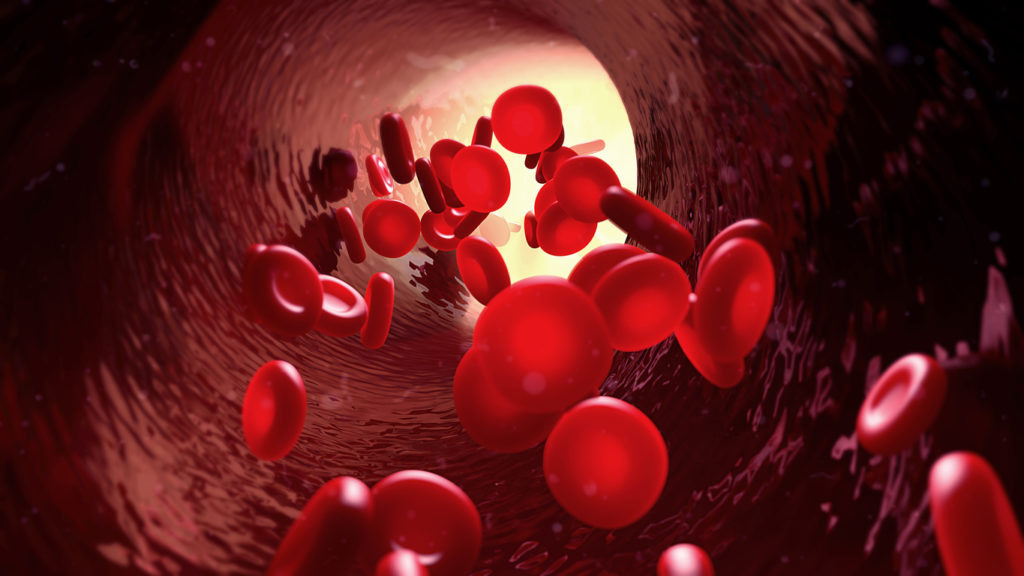The purpose of this study is to evaluate the effect of Low Molecular Weight Heparin (LMWH) (dalteparin) versus Unfractionated Heparin (UFH) on the primary outcome of proximal leg Deep Vein Thrombosis (DVT) diagnosed by compression ultrasound, and the secondary outcomes of Pulmonary Embolism (PE), bleeding, Heparin-Induced Thrombocytopenia (HIT), and objectively confirmed venous thrombosis at any site.
Official Title
PROphylaxis for ThromboEmbolism in Critical Care Trial (PROTECT)
Conditions
Deep Venous Thrombosis, Critical Illness
Study Type
Interventional
Study Design
Prevention, Randomized, Double-Blind, Placebo Control, Parallel Assignment, Safety/Efficacy Study
Further Details
Primary Outcome Measures:
- To evaluate the effect of LMWH (dalteparin) versus UFH on the primary outcome of proximal leg DVT diagnosed by compression ultrasound [Time Frame: While in ICU to a maximum of 90 days]
Secondary Outcome Measures:
- To evaluate the effect of LMWH (dalteparin) versus UFH on the secondary outcomes of PE, bleeding, HIT, and objectively confirmed venous thrombosis at any site [Time Frame: While in ICU to a maximum of 90 days]
Background: Critically ill patients have an increased risk of deep venous thrombosis (DVT) due to their acute illness, procedures such as central venous catheterization, and immobility. Among patients in the intensive care unit (ICU), DVT is an important problem, since thrombus propagation and embolization can lead to potentially fatal pulmonary embolism (PE). Only 1 randomized trial (n=119) in medical-surgical ICU patients demonstrates that unfractionated heparin (UFH) prevents DVT compared to no prophylaxis; only 1 randomized trial (n=223) in ventilated COPD patients shows that low molecular weight heparin (LMWH) prevents DVT compared to no prophylaxis. In medical-surgical ICUs, the effect of LMWH vs UFH for DVT prevention has not been tested. On one hand, LMWH is likely to be more effective at venous thromboembolism (VTE) prevention and is associated with a lower rate of heparin-induced thrombocytopenia (HIT). On the other hand, UFH is likely associated with less bleeding, and is less expensive. Current guidelines indicate that in the absence of comparative data, both LMWH and UFH are suitable for thromboprophylaxis in this population, but that a randomized trial is needed.
Study Start
May 2006; Expected completion: April 2010
Eligibility & Criteria
- Ages Eligible for Study: 18 Years and above
- Genders Eligible for Study: Both
Inclusion Criteria:
- Patient is >= 18 years of age
- Actual body weight is >= 45 kg
- Admission to ICU expected to be >= 72 hours in duration
Exclusion Criteria:
- Neurosurgery within last 3 months
- Ischemic stroke within last 3 months
- Intracranial hemorrhage within last 3 months
- Systolic Blood Pressure >= 180mm Hg, Diastolic Blood Pressure >= 110mm Hg for >= 12 hours requiring vasoactive drug infusion
- Major hemorrhage within last week unless definitively treated
- Coagulopathy as defined by INR >= 2 times upper limit of normal [ULN], or PTT >= 2 times ULN, at time of screening
- Thrombocytopenia defined as platelet count <= 75 x 109/L, at time of screening
- Other heparin contraindications (e.g., HIT, pregnancy, lactating)
- Contraindication to blood products (e.g., Jehovah’s Witness)
- Unable to perform lower limb ultrasound (e.g., bilateral above the knee amputation, or severe distal extremity burns)
- Limitation of life support, Life expectancy <= 14 days, or palliative care
- Contamination (e.g. >= 3 doses of LMWH during this ICU admission)
- Estimated creatinine clearance <= 30ml/min within last 24 hours
- Lack of informed consent
Total Enrolment
3650
Contact Details
- Principal Investigator: Deborah J Cook, MD debcook@McMaster.ca
Royal North Shore Hospital, St Leonards, NSW 2065, Australia; Recruiting
- Simon Finfer, MD 02-9926-5616 sfinfer@med.usyd.edu.au
- Julie Potter, Reg. N 02-9926-5616 jpotter@doh.health.nsw.gov.au
University of New South Wales, New South Wales, 2217, Australia; Not yet recruiting
- John Myburgh, MD 612-9350-3265 j.myburgh@unsw.edu.au
Nepean Hospital, Penrith, New South Wales, Australia; Recruiting
- Ian Seppelt, MD 011-612-4734-3134 Seppell@wahs.gov.au
Royal Prince Alfred Hospital, Camperdown, New South Wales, Australia; Recruiting
- Clive Woolfe, MD 011-612-9515-5513 efloow@gmail.com
Wollongong Hospital, Wollongong, New South Wales, Australia; Recruiting
- Surrsundaran Rachakonda, MD 612 4225 123
Royal Adelaide Hospital, Adelaide, South Australia, Australia; Not yet recruiting
- Marianne Chapman, MD 011-618-8222-4624 Mchapman@mail.rah.sa.gov.au
The Alfred Hospital, Melbourne, Victoria, 3181, Australia; Recruiting
- Jamie Cooper, MD 613-9276-3036 J.Cooper@alfred.org.au
Royal Melbourne Hospital, Melbourne, Victoria, 3101, Australia; Recruiting
- John Cade, MD 613-9342-7441 jack.cade@mh.org.au
Austin Hill Hospital, Heidelburg, Victoria, Australia; Recruiting
- Rinaldo Bellomo, MD 011-613-9496-4835 Rinaldo.Bellomo@austin.org.au
Box Hill Hospital, Box Hill, Victoria, Australia; Recruiting
- David Ernest, MD 011-613-9895-3749 david.ernest@boxhill.org.au
Frankston Hospital, Frankston, Victoria, Australia; Not yet recruiting
- Ian Carney, MD 011-613-9784-8567 Icarney@phcn.vic.gov.au
Monash Medical Center, Clayton, Victoria, Australia; Recruiting
- Jonathon Barrett, MD 011-613-9594-3190 jonathon.barrett@southernhealth.org.au
Bendigo Health Care, Bendigo, Victoria, Australia; Recruiting
- John Edington, MD 011-613-5454-7327 Jedington@bendigohealth.org.au
Flinders Hospital, Bedford Park, Victoria, Australia; Recruiting
- Andrew Bernstein, MD 011-618-8204-6038
All content and media on the HealthEngine Blog is created and published online for informational purposes only. It is not intended to be a substitute for professional medical advice and should not be relied on as health or personal advice. Always seek the guidance of your doctor or other qualified health professional with any questions you may have regarding your health or a medical condition. Never disregard the advice of a medical professional, or delay in seeking it because of something you have read on this Website. If you think you may have a medical emergency, call your doctor, go to the nearest hospital emergency department, or call the emergency services immediately.







